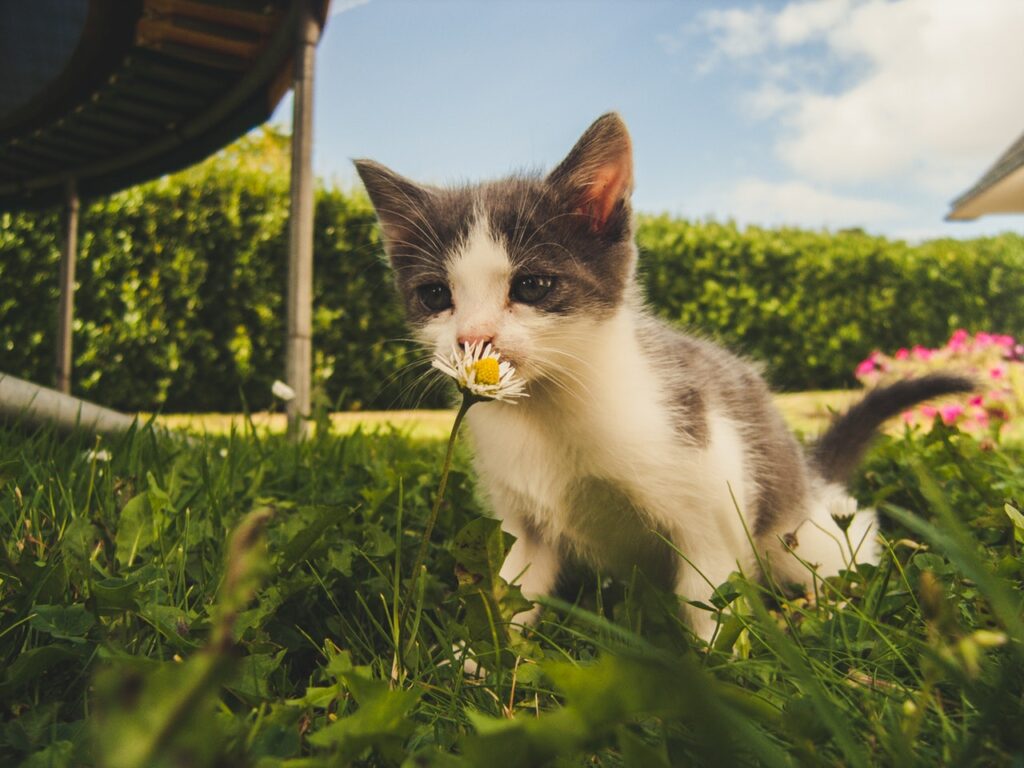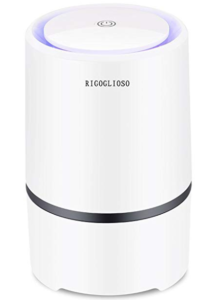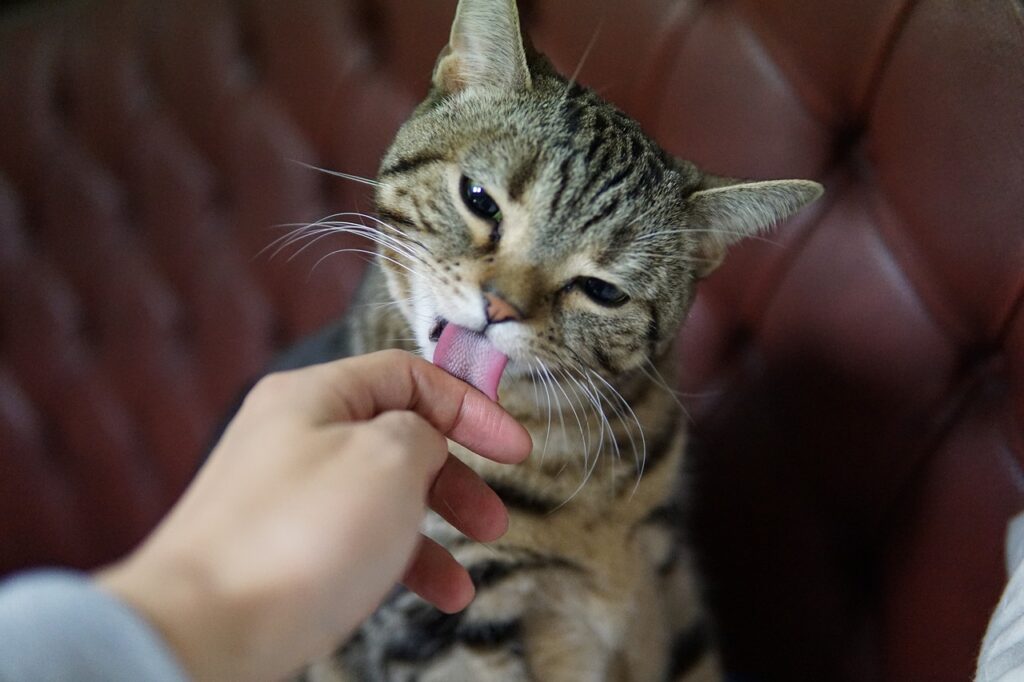Cat allergies are very common; people are considerably more likely to be allergic to a cat than a dog. This doesn’t always come as the best news. You could be set on bringing a cat into your life. You’ve prepared your home for a pet, decided which breed you’d want, and even if you’re going to adopt or not. Then you hit a snag; you have cat allergies. It can derail your entire plans to realise being around a cat is enough to send you into a sneezing fit.

Allergies to cats aren’t that uncommon, for many they can be pretty severe. Some people try to find a hypoallergenic breed, although this is largely a myth. However, it doesn’t necessarily mean you have to give up on the idea of having a cat. You can manage to live perfectly fine with your cats despite your allergies.
There are plenty of treatments now available for those with cat allergies. These vary from trying to medicate the allergies altogether and just trying to deal with the symptoms. The results will vary depending on the person. However, between treatments and working at minimising your reaction, it is possible to live happily with a cat.
Can You Live with Cat Allergies?

What are Cat Allergies?
A lot of people have cat allergies, but may be unaware of what exactly it is they’re allergic to. You’re not allergic to the physical cat itself, but instead to specific substances that are produced by cats. You are allergic to proteins in their skin, saliva and urine. This protein is known as known as Fel d 1. When a cat licks its fur to clean itself, Fel d-1 containing saliva dries and becomes an airborne allergen. Thanks to that protein, cat allergies are twice as common as dog allergies.
Cat allergies can cause a serious problem to those already suffering from some conditions. Those with a condition that is worsened by allergies will have real trouble staying healthy around a cat. Asthma is a particularly bad combination with a pet allergy.
However, it is still possible to live with a cat even if you have allergies. You just have to take some steps to try and keep the allergic reaction controlled.
Cat Free Zones
If you’re attempting to live with a cat despite the allergies, boundaries are more important than ever. To help give yourself a little bit of respite, you need to designate bits of your home as cat-free zones. This is usually the bedroom. Don’t allow your cat into your bedroom to prevent the area from becoming somewhere where your allergies flare up.
You should also be careful when washing bedding or other materials in your bedroom, keeping the area free of cat allergens means keeping up with easing this stuff to prevent allergens getting within the room. Keeping a cat-free zone will be a relief if allergies become too much.
Grooming

Grooming a cat is good for their health and may be a near-constant need if they’re a particular type of pure breed. It can also help with allergies. Brushing your cat outside of the house lets you remove some of the substances produced that has gotten into their fur. This helps reduce the number of allergens spread around your home. It is really important to do this outside of the home, using a leash for a cat will help if they’re an indoor cat. This helps you keep the allergen outside.
Décor
Various bits of fabric and furniture can be worse for causing cat allergies than others. Rugs and furniture with deep fabric hold the cat allergen much easier than hardwood furniture of flooring. Hard flooring is easily swept and kept clean, whereas carpets can have allergens soak in petty easily.
While redecorating entirely might not be feasible, minimising your cat’s time on these sorts of fittings could help your condition.
Cleaning
A really important thing for minimising your exposure to cat allergens is to keep clean. The more often you can hoover and ventilate your home or use a pet cleaning product, the less you’ll be exposed to their allergens. This applies doubly to any pet bedding or a litter box. Urine contains just as many allergens as a cat’s spit!
Anywhere heavily used by your cat needs to be cleaned of allergens as often as possible.
Air Purifiers
Air purifiers with a HEPA filter can help ease the symptoms of cat allergies in people by treating the air and removing the allergens. This is helpful, but since the allergens have a habit of getting into furniture this isn’t a full solution. They help, but a purifier isn’t a complete cure.

These treatments can help keep your symptoms under control, but they won’t solve the problem entirely. You will still have some symptoms, so treatment is often still necessary even when minimising your exposure to allergens.
Hypo-Allergenic Cats?

Some people attempt to get a hypoallergenic cat to avoid all of that work to keep a home allergen-free. While many people believe that hairless cats are perfectly fine for those with allergies, this isn’t exactly the case. There isn’t a specific hypoallergenic breed of cat. Having said that, there are some breeds with produce allergens less than others.
Some breeds of cat produce significantly fewer allergens than others. These are the cats that you will often see listed as ‘good cats for those with allergies’. However, studies have found there are no 100 per cent hypoallergenic domestic cats or cats that are completely non-allergenic. Cat allergens are still present in their saliva. Some cats may not produce these chemicals outside of their saliva, but it is still present in their spit. A hypoallergenic breed of cat might spread their salvia around less, but they will still produce a reaction from allergic owners.
While some more hypoallergenic cats have been found, this was the result of a recessive gene which is almost impossible to recreate outside of destructive inbreeding. Since it is a recessive trait, actually recreating it across a lot of cats leads to such inbreeding that it causes many other problems.
All cats are going to produce a reaction to those allergic to varying degrees. However, there is something you can to make it easier on yourself.
Treatment for Cat Allergies?

If you have cat allergies but you still want to live with a cat, your best solution is going to be to use a treatment. How strong of a treatment you need is going to depend on the severity of your allergy. There are a number of treatments that can be effective. It is worthwhile trying these treatments if you’re struggling with cat allergies.
Antihistamines
Over the counter antihistamines are marketed as a cure-all for pretty much any allergy. While they often go hand in hand with hay fever, they can be an effective way to treat cat allergies. These treatments might work in a tablet form, but for a lot of people, it won’t quite be enough to make the symptoms liveable. In those cases, you’re best of progressing onto a different treatment.
Decongestants
Decongestants are an alternative treatment for cat allergies that some people might find helpful. They contain pseudoephedrine hydrochloride (for example Sudafed) to try and treat the symptoms of an allergy. These are often available as nasal sprays over the counter. These treatments will help you ease the discomfort of an allergy.
Allergy Shots
Allergy shots are a really useful way to help avoid cat allergies. However, they aren’t always effective. Sometimes they can actually worsen the effects of an allergy, especially when given to children. This is also a less than convenient approach since it has to be planned out some time in advance. Shots might be effective, but they are quite unpractical compared to other solutions.
Inhalers
Inhalers can be prescribed by doctors for those suffering from more serve allergies. These can be really effective in relieving the symptoms of cat allergies. However, since they’re prescription they may not be prescribed to everyone. They won’t take away the allergies entirely. There is no complete cure. However, they can improve your symptoms considerably and can help you control your allergies.
Should You Get a Cat if You Have Allergies?

With hypoallergenic cats largely a myth and the treatments for cat allergies quite far from 100% effective, should you still get a cat if you have cat allergies?
It is still quite possible to enjoy the company of a cat despite allergies. While you may have to persevere with some symptoms, it can be balanced. By minimising your exposure to allergens and using the best treatment possible, you should be able to tolerate your symptoms. However, it is important to be realistic about your options for treating an allergy. You will have to put up with some symptoms and some extra work cleaning up allergens if you want to have a cat. If you’re set on a new kitten, this can be an acceptable trade-off!
If you’re willing to work at keeping your allergies at bay, those with an allergy to cats can still have a good life with one around.









